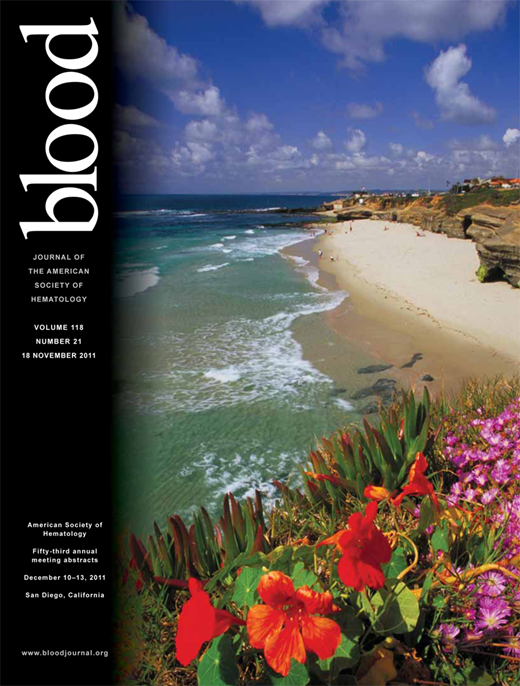Abstract
Abstract 5145
Systemic mastocytosis (SM) is a myeloproliferative neoplasm with heterogeneous clinical presentation, limited treatment options and generally poor prognosis in the aggressive form. Deregulation of c-KIT activity is central to disease pathogenesis and over 90% of SM patients harbor KIT-activating mutations; most commonly D816V. Following demonstration of potent in vitro activity against human mast cells with kinase domain KIT mutations, the clinical activity of the staurosporine derivative midostaurin (PKC412) is being investigated (1). We report the clinical experience of SM patients that have received midostaurin at 7 centers in the United Kingdom via an open-label compassionate use program.
Midostaurin was commenced at a dose of either 50mg or 100mg bid, adjusted according to tolerability, and given continuously until disease progression or unmanageable toxicity. A questionnaire was developed and used to gather clinical information on all patients treated within the programme
A total of 11 patients were treated (6 male, 5 female). The median age of patients commencing midostaurin was 58 years (range 40–80 years). The median number of prior therapies was 1 (range 0–3) including splenectomy, hydroxycarbamide, nilotinib, dasatinib, interferon, cladribine and sirolimus. Sub-classification of SM (2) included 8 patients with one or more ‘C’ findings (7 aggressive SM, 1 SM-MPN-U), 2 cases of smouldering SM and 1 with indolent SM. KIT D816V mutations were confirmed in 10 patients; PCR testing failed in the remaining case.
Minor (grade 1/2) nausea and/or vomiting was reported in most patients (n=9) with less common toxicities including diarrhea (n=2) and minor QTc prolongation (n=3). One aggressive SM patient stopped midostaurin after 9 days due to myalgia / cramps and increasing fatigue and was not evaluable for clinical response. Successful dose escalation to 100mg bid was achieved in 2 of 5 patients treated initially at 50mg bid, with dose reductions necessary in 2 of 6 patients started at 100mg bid. The latter were for grade 1/2 prologation of QTc and nausea/vomiting.
Midostaurin was administered to 10 clinically-evaluable patients for a median duration of 8 months (range 3–54 months); 4 patients remain on treatment. Clinical efficacy was assessed as per Valent Response Criteria (3). Marked responses were seen in systemic mediator-related symptoms, with 3 patients achieving continuous complete regression (CCR) lasting more than 2 years, 2 further patients showing major regression (MR) and 4 cases partial regression (PR). Sustained reductions were seen in SM-associated diarrhea (71% patients), abdominal pain (67%), allergic manifestations (70%), urticaria pigmentosa (71%) and fatigue (50%). 2 patients continue to enjoy complete regression of systemic mediator symptoms after 51 and 54 months on midostaurin 50mg bid. Measurable clinical responses of ‘C’ findings in 7 evaluable patients with advanced disease were more limited. One patient with bone marrow dysfunction achieved a partial response after 5 months on midostaurin with ongoing improvement of hemoglobin and transfusion independence. A further patient achieved sufficient reduction in splenomegaly after 4 months of midostaurin to allow successful splenectomy. No documented responses were seen in lytic bony disease (3 patients) or ascites / portal hypertension (1 patient). Decreases in serum tryptase levels on midostaurin treatment were seen in 8 out of 10 evaluable patients with >50% reduction from baseline in 6 patients.
This retrospective review in a small cohort of patients in the UK reflects the true heterogeneity of SM seen in clinical practice. In this non-selected patient population midostaurin was well-tolerated. Clinically-relevant responses of systemic mediator symptoms were seen in a majority of patients, including durable responses sustained beyond 4 years. Responding patients had a markedly improved quality of life, midostaurin replacing a cocktail of medications. An ongoing Novartis-sponsored international phase 2 study continues to evaluate the safety and efficacy of this agent in advanced SM.
Knapper:Novartis: Honoraria. Off Label Use: The abstract contains a discussion of the tyrosine kinase inhibitor midostaurin (PKC412) used off-label as part of a compassionate use program in systemic mastocytosis.
(1)
(2)
(3)
Author notes
Asterisk with author names denotes non-ASH members.

